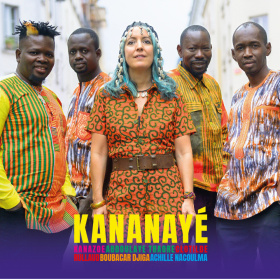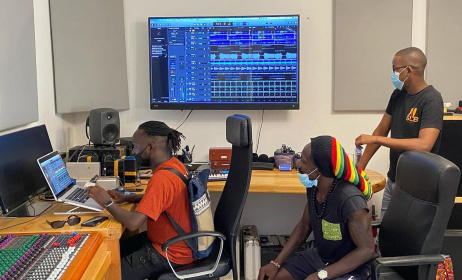Kenya: MPAKE distributes music royalties for the first time
The Music Publisher Association of Kenya (MPAKE) announced the distribution of 1.3m Kenyan shillings ($13 000) in royalties on Friday. The number represents collections between 1 November and 31 December 2017.
 MPAKE board member Dan Aceda.
MPAKE board member Dan Aceda.
MPAKE gave a detailed account of royalties assigned to each song. Though it was granted a licence in March of 2017, court battles prevented the collective management organisation (CMO) from collecting royalties until November. Following a directive by the Kenya Copyright Board (KECOBO), all three music-related CMOs in the country were instructed to conduct joint collection. MPAKE announced that the total collection from the joint effort came to Ksh 4.7m.
“The distribution cover a total of 240 musical works with 150 of them being unique titles," MPAKE said in a statement. "It covers the top 20 performing musical tracks in the period as measured by all available data points including radio monitoring data, audience sampling and digital platforms data.
"In a move to protect the value of a singular song play in this and future distribution periods, the board of MPAKE proposes that works must achieve a minimum of 0.1% of the recorded song plays in order to qualify for distribution.”
The distribution methodology employed two categories: a national ranking as per the play count drawn from available data, and regional distribution using an equitable formula where the highest earner does not earn more than 20 times than the lowest earner.
About 10% went to an MPAKE savings and credit cooperative organisation (SACCO), 35% to national distribution, 35% to regional distribution and 20% to foreign works.
In terms of gender, 67% went to men, 27% went to women, while 6% went to works that involve female copyright holders.
Some of the top national earners were Willy Paul's 'I Do' (Ksh 11 685), Nyashinski’s ‘Mungu Pekee’ (Ksh 11 482), Otile Brown's 'Alivyonipenda' (Ksh 11 198 and Bruz Newton’s 'Zigwembe' (Ksh 11 036)
“We have set a trend in royalty management by having an inaugural distribution in our first year," artists and MPAKE board member Dan Aceda told Music In Africa.
"There are CMOs that have taken many years before beginning distribution but we wanted to be different. It’s not easy for us, we actually have many debts but we had to do it.”
A lack of transparency in distribution has marred the Kenyan royalties sector for many years. Previous licence holder the Music Copyright Society of Kenya (MCSK) was stripped of its mandate for not properly accounting for collections.
MPAKE's detailed account of distribution is now hoped to go a long way in improving royalties management in Kenya.
“As an industry we need to develop better data collection methodologies, not just for royalty distribution but for direct investment," Dan Aceda said. "If sponsors and event organisers knew which artist are popular in each region, it could really help them to direct their efforts towards profitable ventures.
“Another area that needs improvement is joint collection. Although it was a prerequisite for the licence, it requires better streamlining to meet its full potential. Joint collections have the potential to get to Ksh 500m a year if well-managed."





























Commentaires
s'identifier or register to post comments